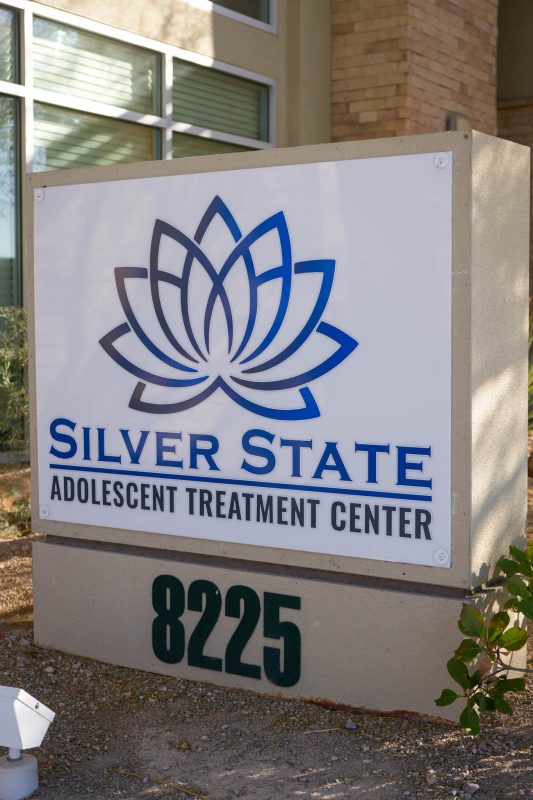Teen Compulsive Eating Disorder Residential Treatment Program
What We Do

Behavioral Therapy

Trauma-Informed Care

Holistic Treatment Therapy
Compulsive Eating Disorder Treatment Program for Teens
Compulsive eating, also known as emotional or uncontrolled eating, is more than just overeating. It’s a complex behavior often rooted in deep emotional pain, anxiety, or stress. Teens may feel driven to eat in large amounts even when they’re not hungry—and may feel shame, guilt, or distress afterward.
At Silver State, our residential treatment program creates the space teens need to step out of this cycle. With 24/7 support, structured routines, therapeutic meals, and individualized therapy, we help teens begin to understand the “why” behind their eating behaviors—and guide them toward real, lasting change.
We focus on healing—not blame—and help teens rebuild a positive connection with food and themselves.


What is Compulsive Eating Disorder?
Compulsive eating disorder involves frequent, repeated episodes of uncontrolled eating—often triggered by emotional stress, anxiety, sadness, or boredom. Unlike Binge Eating Disorder, these episodes may vary in size and frequency, but still result in a feeling of loss of control and emotional distress.
Compulsive eating is not about laziness or lack of willpower. It’s a mental and emotional health concern that can be tied to trauma, body image issues, low self-esteem, or difficulty regulating emotions.
Our program treats compulsive eating at its root—through therapy, emotional support, skill-building, and nutrition—not through dieting, restriction, or shame.
Signs and Symptoms of Compulsive Eating Disorder in Teens
It can be difficult to recognize when a teen is struggling with compulsive eating, especially if they’re hiding the behavior or feel ashamed. Common signs include:
Frequent eating episodes, especially at night or when alone
Eating rapidly or past the point of fullness
Using food to cope with stress, sadness, or anxiety
Difficulty stopping or controlling eating once started
Feelings of guilt, shame, or distress after eating
Withdrawal from social situations or meal avoidance with others
Preoccupation with food, dieting, or weight
Fluctuating weight and body dissatisfaction
If your teen is showing any of these signs, our residential program can help them regain control and begin to heal.


Why Individualized Plans Matter for Teens with Compulsive Eating Disorder
Each teen’s journey with compulsive eating is different. Some may be reacting to emotional trauma, while others are overwhelmed by anxiety, depression, or pressure to look a certain way. That’s why every teen at Silver State receives a fully individualized treatment plan.
These personalized plans may include:
Individual therapy and trauma work
Nutritional guidance without restriction or shame
Supervised therapeutic meals
Emotional regulation skill-building
Group therapy and peer support
Family therapy and education
Holistic therapy (movement, art, mindfulness)
We also support teens with relapse prevention planning and aftercare coordination to ensure long-term success.
The Silver State Adolescent Approach
At Silver State Adolescent Treatment, we believe teens deserve compassionate care that honors both their emotional pain and their potential for healing. Our residential program gives teens the space to pause, reset, and begin developing healthier relationships—with food, emotions, and themselves.
We don’t treat compulsive eating with judgment or diet plans. We treat it with empathy, clinical expertise, and a whole-person recovery model that supports emotional and physical well-being.
Recovery isn’t about perfection—it’s about progress, understanding, and connection. And it starts here, with a team that never gives up on your teen.
Contact Silver State Adolescent Treatment
Please fill out the form to get started and someone from our admissions team will be reaching out to you shortly.

Teen Eating Disorders We Treat
FAQs About Teen Compulsive Eating Disorder Residential Treatment
While similar, compulsive eating tends to be ongoing and habitual, not necessarily in distinct “binge” episodes.
No. It is driven by psychological or emotional triggers and includes a loss of control around food.
Frequent overeating, eating in secret, emotional distress after meals, and inability to stop eating despite being full.
We use CBT-E, DBT, nutritional therapy, trauma-informed care, and family therapy to address root causes and develop healthy behaviors.
Yes. Our accredited academic program supports continuity of education and accommodates IEPs.
Yes. Weekly family therapy and regular check-ins help strengthen relationships and prepare for discharge.
No. It’s a psychological condition, not a character flaw or weakness.
Yes. With the right care and support, long-term recovery is possible at any age.
Absolutely. Hope is part of the healing process and recovery is achievable.
No. The focus is on emotional well-being, body trust, and reducing compulsive patterns—not weight.
Get Started
At Silver State Adolescent Treatment, we understand how important your questions and concerns are. For immediate assistance or detailed inquiries, please fill out our contact form so our team can respond quickly.
Our compassionate staff is here to provide personalized support tailored to your teen’s needs.
You can also reach us directly using the contact information below. Together, we’ll take the first steps toward your teen’s mental health and recovery.








